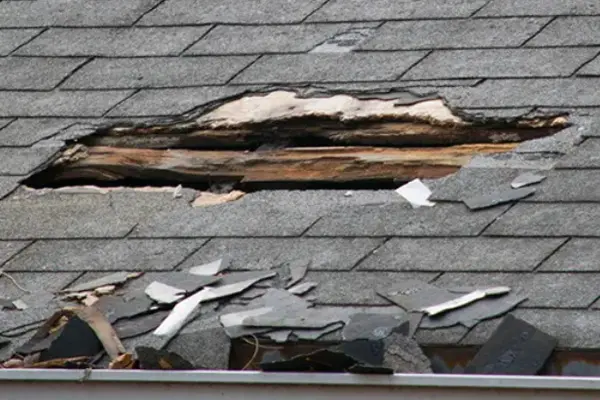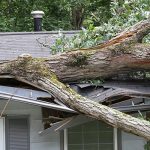While Florida is known as the Sunshine State, it is also known for its Atlantic Hurricane season. During hurricane season, homeowners frequently suffer roof damage from strong tropical storms or full-blown hurricanes. Unfortunately, your roof is often an easy target for the powerful winds and rain that accompany a storm.
After experiencing roof damage, you would understandably expect your homeowner’s insurance company to cover the costs associated with repairing or replacing your roof. Unfortunately, however, roof damage claims are sometimes denied. This happens for a variety of reasons that homeowners should be aware of.
Common Types of Florida Roof Damage
Realizing that your roof was damaged in a tropical storm or hurricane can be a traumatizing experience. After all, your roof is an integral part of your home that, when damaged, can render your home uninhabitable. Depending on the strength and proximity of a tropical storm or hurricane, roof damage might include:
- Loose or lost shingles or tiles
- Water leaks
- Holes in the roof caused by flying debris
- Damage to the structure of the roof from falling tree limbs
- Damage to floors, furniture, and personal belongings inside the home
Why Might a Roof Damage Claim Be Denied?
If you have been paying your homeowner’s insurance premiums as required for some time, you likely feel somewhat relieved knowing that the damage to your roof and home will be covered. That is, until your claim is denied.
There are several common reasons insurance companies give for denying roof damage claims, including:
- The loss is not covered. Insurance companies will often look for an exclusion or loophole that allows them to claim a loss is not covered under your policy. In Florida, for example, homeowners are often required to opt-in or purchase separate coverage for damage caused by hurricanes or flooding. If you declined hurricane coverage, your insurance company may consider the damage to be an uncovered loss and deny your claim.
- Your claim missing documents or is otherwise incomplete. Another common tactic used by insurance companies is to require homeowners to submit a seemingly endless amount of documentation and evidence to support their claim. When an insured property owner is unable to provide the requested documentation or evidence, the claim is delayed and/or denied.
- Your policy only covers repairs. A homeowner’s insurance policy can provide for replacement or repair coverage. Moreover, it can call for both within the same policy for different types of losses. Most homeowners purchase replacement coverage; however, if your policy only provides repair coverage, a claim that involves a total loss to your roof may be denied because it cannot be repaired.
- A third party is responsible for the damage. Your insurance company may deny your roof damage claim on the basis that a third party is partially or entirely liable for the damage. For example, they might allege that the manufacturer of the shingles/tiles produced a defective product or that the company that installed the roof did a shoddy job and is, therefore, responsible for the damage.
- Your roof was previously damage by something other than the storm you claim damaged it. Your insurance company may deny your claim, saying that the recent storm was not the cause of the damage. They may cite an earlier storm, normal wear and tear, unusual wear and tear due to poor maintenance or some other such reason.
Do I Need a Florida Roof Damage Insurance Claim Attorney?
If your roof was damaged in a Florida storm, you probably think your insurance company will cover the cost of repairing or replacing your roof. You most likely also expect your claim to be paid without unnecessary delay. Keep in mind, however, that insurance companies are in the business of making money, meaning they often look for ways to deny or delay paying claims.
If your roof damage claim has been denied, or you believe it has been delayed without good cause, you should consult with an experienced Florida roof damage claims attorney. An attorney can investigate the damage to your roof and property, review your insurance policy, and evaluate the reason your claim has been denied or delayed. When possible, an experienced roof damage attorney will negotiate with the insurance company for a full and fair settlement for you. If a settlement is not forthcoming, your attorney can litigate your claim in court to fight for and win the compensation you need.
Will I Need to File a Lawsuit if My Florida Roof Damage Claim Is Denied?
One concern homeowners often have is that they will need to become involved in the court system if they challenge their insurance company. Most roof damage insurance claims do not require litigation. If it is necessary to file a lawsuit, however, having an experienced attorney on your side ensures that someone will advocate for you and your rights in court so that you can be fully compensated for the losses you suffered.
How Much Will a Florida Roof Damage Attorney Cost?
Another reason that homeowners may be reluctant to contact an attorney is that they believe they cannot afford an attorney. The good news is that if your insurance company has denied your roof damage claim, an experienced roof damage claims attorney will not charge you anything upfront. Your attorney will only be paid if you accept a settlement or are awarded a verdict at trial.
Where Can I Get Help with My Florida Roof Damage Insurance Claim?
If you suffered roof damage and your insurance company has denied your claim or there has been an unreasonable delay in paying your claim, call us at 407-500-1000 or submit our online form today. One of our experienced Florida roof damage insurance claims attorneys will explain your rights to you and discuss your legal options at no cost.




